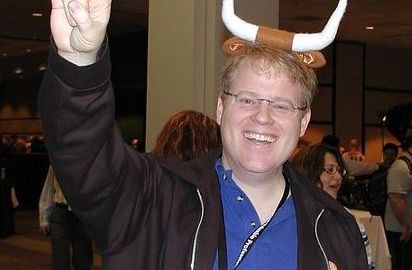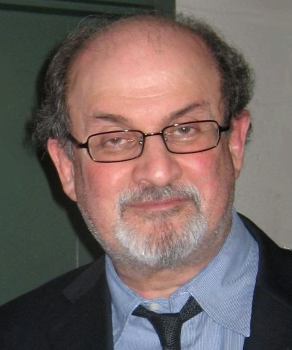Robert Scoble Riffs On Race In Tech After CNN Silicon Valley Special

The internet went crazy Sunday night after Black In America: The New Promised Land- Silicon Valley. Twitter, the place on the internet where the wired segment of Afro America goes to talk, had black people from across the country giving shoutouts from watch parties, dropping links to live panels with some of the tech entrepreneurs who had been on the show, and congratulating the NewMeAccelerator founders.
There was also a vocal contingent of naysayers who loved the idea of a documentary about black tech entrepreneurs but felt that the concept could have been executed differently. “Being black in America isn’t entertaining,” said Elon James White, digital comedian and Twitter personage, said during a show he taped Monday. “When I get turned down for something, there isn’t any sad music in the background.”
I’m pretty plugged into this part of the internet. These are my readers and friends and fellow bloggers and people whose messages I often retweet. Along with my congratulatory tweets, I had my share of complaints about certain aspects of the CNN special. But there is a point in all of this self-referencing and wagon circling where we as African Americans run the risk of turning this into a “give me my 40 terabytes and a T1” type of thing, which can end up being the digital version of the “we didn’t get our 40 acres and a mule” lament.
So as I started looking up people and places on Google who were having alternate conversations about the show, I ran across an article and an audio tape by two different white men who had watched The New Promised Land- Silicon Valleyand subsequently shared their reactions. Robert Scoble and Dylan Tweney, who are real live movers and shakers in Silicon Valley, give an intimate look into why we are where we are, and both of them offered specific suggestions from the perspective of bon fide insiders on what Silicon Valley can do to increase minority participation in Techland.
Tweney, the executive editor of Venture Beat, had a list of prescriptions for change in the Silicon Valley status quo so detailed in his blog piece titled How The Tech Industry Can Remedy Its Race Problem, it was as if he had been saving it on his hard drive just for this occasion. Scoble, who works at Rackspace, recorded a rambling monologue with his IPhone sometime after the show, titled the recording “My thoughts on race and tech. #blackinamerica It is a 50-year problem” and posted it on the web. As somebody who grew up in Silicon Valley, Scoble, a former Microsoft technology evangelist, was so honest and so specific I transcribed some of what he had to say below:
“But, there is something going on with race and culture. I call it a fifty year problem, and that’s why I put the title on here. It is a problem that‘s going to take two, or three generations to fix. Smoking was like this. I remember people coming to my school when I was young and bringing a black lung and going ‘this is what happens if you smoke.’ And they spent twenty years, and actually more…people still smoke, right?…because it took that long to change the culture.
And that’s why I applaud Wayne Sutton and Angela for doing what they’re doing. It’s a fifty year problem. It’s not going to be fixed tonight because there was a show. It’s not going to be fixed because there’s one company getting funded. It’s not going to be fixed if there’s one more speaker at South By Southwest next year. It’s not going to be fixed if Ron Conway invests, you know?
It’s a long term major problem. It’s not just black and white, its women female, but it’s a problem for our world because we need to up our game globally around computers. The world is turning into a technology world. It’s not a machine world anymore.
You know, when grew up, in junior high and high school, we had machine shop. I learned how to pour metal into a cast and make a metal object. That skill has very little value today because a robot can do that. What does have value in today’s society is somebody who knows what node js is who can build a system that can send messages from one part of the world to another part of the world or from people to different people and filter them in different ways.
That’s a different skill than the skills I was taught to do when I was a kid. And it’s a different skill than a lot of high schools and a lot of people are learning today. And that’s the real problem. It’s a deep, deep problem, and race in America, and race in the world, is something that very few people talk about or think about. That’s why I like this show. It’s making us think about it, and talk about it, and maybe that will lead to the solving of this 50 world problem.
So I just started looking at my phone and I see a few things. ‘It’s an entrenched, insular culture.’ Absolutely. And that’s what I got from school. I was given keys to the school [San Jose State], and I could walk around at 2, 3 in the morning, and be hanging out, alone, without a teacher, without a professor, and nobody would bother me, the cops would walk down the hallway and say ‘Hi’, and…would they have done that with someone who was not a white male? I think Wayne Sutton’s experience walking down the street in Mountain View demonstrates that ‘no, that would not have happened.’
So these little tiny incidences in people’s lives guide them down, and that’s cultural.”
“I’ve met a lot of people and the people who can tell me what they want generally get it. If you say, ‘hey, I want to start a company with ten engineers, and I need a good CEO who can help manage that’…if you say ‘I’m a Java programmer, but I need 9 Ruby On Rails experts’…if you are able to tell me what you want, and tell other people what you want, generally, you’ll get there, because at least we can help you.”
I agree with Scoble wholeheartedly—specificity is the key in whatever you are doing if you want to rise to the top of your field.
Personally, I would have appreciated a one on one close-up with each entrepreneur for two or three minutes that allowed them to explain to the camera what their products actually did, with some sort of brief demo to show their concept in action, which would have been a more natural way to emotionally draw me as a viewer into the show. And as a guy who has written his share of business plans, it would have been a realistic touch to have a Powerpoint of someone’s pie charts from their business plan projected on a wall somewhere, with one of the investor mentors like Mitch Kapor questioning the assumptions behind the entrepreneur’s numbers. The producers could not do this, though, unless the show was a two hour special.
Despite the laundry list of things I’ve outlined here that I would like to have seen in the documentary, I still enjoyed the show very, very much—no scratch that—I felt a sense of pride swelling in my breast while watching the show because it showcased African Americans for a change who are more like the people I know than many of the caricatures and stereotypes I still see too much of on broadcast TV.





